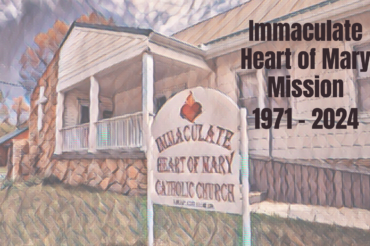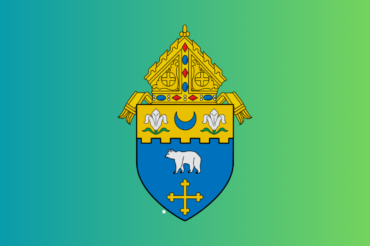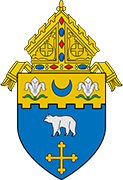Hearing, Knowing, and Following
Many years ago, I rented a house on a rural property near to the city I worked in. It was the original farmhouse on the property, on which the owner of the farm had built a new modern house on the adjacent half acre of land.
It was a nice place but, every time I went outside, I would be greeted by the neighbor’s dog. This dog was named Spike, and he was a vicious guard dog whose sole purpose was to keep unwanted people off the property.
I need to make friends with this dog, so I developed a strategy to overcome this situation. I kept my jacket pockets stuffed with dog treats, and every time Spike visited, I threw him treat.
A few weeks later I was talking outside to my neighbor, and Spike trotted up us. Without hesitation, Spike promptly rolled on his back and presented me with his belly for a rub. My neighbor was astonished! “What have you done to my dog?” he asked. Spike continued to be extremely unfriendly to strangers, but I had become his friend.
In today’s Gospel Jesus uses another farm animal to make his point. Sheep also form a bond with their shepherds. They quickly become familiar with the sound of the shepherd’s voice. They will come when there are called, and they are even soothed by the reassuring voice of the shepherd. If a new sheep is added to the fold, it is very anxious and distressed until it bonds to its new owner.
Jesus says, “My sheep hear my voice; I know them, and they follow me” (John 10:27). It is possible to ‘hear’ someone and then to ignore them, and to do nothing they ask. The word used for ‘hear,’ however, means not just to passively listen to but to ‘respond on the basis of having heard.’ Jesus’ sheep accept and heed what he says.
The sheep ‘know him’ and ‘follow’ him. ‘Knowing him’ implies trust and relationship with Jesus. ‘Following’ can literally mean to follow behind someone, but it also has the figurative meaning of ‘being a disciple.’ As a disciple, ‘following’ can mean ‘living in obedience’ to the Master. The disciple hears the master’s voice and follows or imitates his life and teachings.
Jesus promises that those who follow him, will not merely gain rich pastures but ‘eternal life.’ The good shepherd will protect them so that they ‘shall never perish.’ Earlier in this passage Jesus promised to be the good shepherd (John 10:11) who protects the sheep from thieves and robbers and even from the ‘hireling’ who only cares about getting paid. The good shepherd will lay down his life for the sheep (3:16, 10:17). Jesus promises here, ‘no one shall snatch them out of my hand’ (John 10:28).
Jesus gives a reason for this. He notes that, “My Father, who has given them to me, is greater than all, and no one is able to snatch them out of the Father’s hand” (John 10:29). Jesus shares in the ministry and prerogatives of his Father. So much so, that Jesus is able to say, “I and the Father are one.” (John 10:30).
What does Jesus mean by “I and the Father are one?” Firstly, in the original Greek, the word for ‘one’ is neuter and not masculine. Jesus is not saying that he and the Father are one and the same person.
Later speaking of his disciples, Jesus is willing to pray, “may [they] be one, as we are one” (John 17:22). The language of oneness is broad enough to include the disciples. Is Jesus then referring merely to his oneness of action and will with the Father, with no implication of his share in the Father’s divinity?
This would be very odd in a book in which Jesus divinity is openly declared by John (1:1, 18) and which concludes with the climatic confession by Thomas, “My Lord and my God” (20:28). While in the immediate context here, Jesus shares the Fathers will and task of preserving his sheep, we have already been previously been told in this Gospel that the Jews understood Jesus’ references to God as his Father as, “making himself equal to God” and they tried to kill him for blasphemy (John 5:18).
Jesus’ oneness of will and task with the Father must be understood as a divine will and divine task. The unity of the Father and Son is not the same as the unity of his disciples, but the divine reality against which true Christian unity is measured.
While we all share the capacity to be children of God, the Son of God is unique in his oneness with the Father. The Son is the revealer of the Father’s will, the one who has come down from heaven, the unique good shepherd who gives his life for the sheep. Again, earlier in John’s Gospel, Jesus will claim that, “the dead will hear the voice of the Son of God, and those who hear will live” (John 5:25). Like the Father, Jesus’ voice has the power to raise the dead and to give life (John 5:21).
To become one with the Father and the Son we must be ‘born from above’ (John 3:3) or ‘born of water and spirit’ (3:5) we must ‘believe in the Son’ and so not perish but have eternal life (3:16, 10:28). Jesus says, “My sheep hear my voice; I know them, and they follow me” (John 10:27).
Each one of us need to ask ourselves, “Do I know the voice of the shepherd?” Have I trusted him enough to say, “Yes, Lord” and to truly follow him with my whole heart? If we compared this commitment to our other human relationships, how serious is our commitment? Are we just casually dating, or are we ‘all in’ and fully committed to the relationship? Trust and see that the Lord is good.
Deacon Scott McKellar is Pastoral Associate at St. Therese Parish, North.





